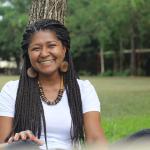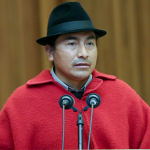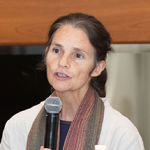Global efforts to eradicate extreme poverty have faced significant setbacks following the COVID-19 pandemic and a series of major shocks, with none of the SDG 1 targets on track to be achieved by 2030. In 2022, 9 per cent of the world's population, or 712 million people, were living in extreme poverty, an increase of 23 million people compared to 2019. If current trends continue, 590 million people, or 6.9 per cent of the world’s population, will still live in extreme poverty by 2030. Interlinked crises continue to thwart sustained progress on the SDGs. Economic losses due to natural disasters remained stubbornly high in recent years and social protection for the most vulnerable has been insufficient to counter the multidimensional impacts from the shocks. In 2023, only 28.2 per cent of children globally received child cash benefits, an improvement over the 22.1 per cent in 2015, but still leaving 1.4 billion children aged 0-15 without coverage. Developing countries lack fiscal space to tackle poverty especially in the face of high debt burdens.
This session will take stock of where we are in terms of progress towards SDG 1, in the second half of the journey towards the SDGs. It will examine new challenges in the global landscape likely to impact overall trends and distribution of poverty and how policymakers can best respond to these. In the current context, it will also discuss what needs to be done differently (or perhaps with renewed emphasis) in the quest to ‘end poverty, in all its forms, everywhere’ by 2030.
This session will consider innovative solutions that may have emerged in response to various crises, and how these might be scaled up. This includes building on synergies with green technological transformations and ensuring that the benefits are widely shared through just transitions. It will also explore how the gendered incidence of poverty can be tackled, including in relation to the care burden, and what are some solutions for gender equality and poverty reduction. The discussions will allow the global community to build on new opportunities, learnings and good practices that have emerged in the first half of the 2030 Agenda, to harness the political momentum from the SDG Summit and to speak to the challenges under consideration by the Summit of the Future in September 2024.
Proposed guiding questions:
- In the current context, what needs to be done differently, or with renewed emphasis, in the quest to “end poverty, in all its forms, everywhere” by 2030?
- How can we develop more integrated strategies for poverty reduction that consider its interlinkages with other Goals? How can we better take advantage of potential synergies and manage potential trade-offs?
- How can advances in SDG 1 be protected in the face of macroeconomic shocks, climate shocks and disasters? What strategies will ensure that risks are not disproportionately borne by the poorest?
- What are some innovative solutions for developing countries to access long-term financing for sustained poverty reduction? How can international actors support this agenda through knowledge generation and exchange?
- What needs to be done to ensure that the gains in poverty reduction reach all groups in society? What are some solutions for reducing horizontal inequalities and poverty?
Chair:
- H.E. Mr. Bob Rae, Vice President of ECOSOC (Canada) (10:00 am – 11:30 am)
- H.E. Mr. Tarek Ladeb, Vice President of ECOSOC (Tunisia) (11:30 am – 1:00 pm)
Highlights:
- Findings of the report of the Secretary-General on progress towards the SDGs – SDG 1 on poverty eradication
Mr. Sokunpanha You, Statistics Division, DESA - Representative of Regional Commissions: Regional perspective on implementation of SDG 1 and interlinkages
Ms. Rola Dashti, Executive Secretary of the Economic and Social Commission for Western Asia (ESCWA)
Interactive panel discussion
Moderator:
- Ms. Shahra Razavi, Director of the Department of the Department for Economic, Universal Social and Cultural RightsProtection, International Labour Organization (ILO)
Panellists:
- Ms. Ilze Brands Kehris, Assistant Secretary-General for Human Rights, Head of the UN Human Rights Office in New York
- Ms. Sabina Alkire, Director, Oxford Poverty and Human Development Initiative, University of Oxford
- Mr. Luis Felipe Lopez-Calva, Global Director for the World Bank Group’s Poverty and Equity Global Practice
- Mr. Leonidas Iza Salazar, President of the Confederation of Indigenous Nationalities of Ecuador (CONAIE)
Lead Discussant:
- Ms. Vercilene Dias, Founder of the National Network of Quilombola Lawyers (RENAAQ), Brazil (MGoS)
Ministerial Respondent:
- Mr. Gustavo Bolivar, Director of Social Prosperity, Colombia
Interventions by other ministers and participants (up to 2-3 minutes each)
 Welcome to the United Nations
Welcome to the United Nations








